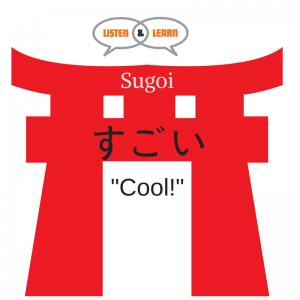17 Japanese Slang Terms Used in Daily Life
Japanese is known for its formality and strict language rules, but it also has a fascinating array of slang terms that add color and nuance to conversations. These include Oi, whose meaning in Japanese is a lot like “Hey!, Ryoukai, which means “Got it”, and Yaro, a common Japanese swear word. Whether you’re looking to impress your friends or navigate social situations with more flair, these Japanese slang expressions will come in handy. To delve deeper into Japanese slang and start working on your fluency, take a few one-to-one Japanese lessons with one of our native teachers.
Table of Contents
→Sign Up Now: Free Trial Japannese Lesson With a Native Teacher!←
Oi – オイ
This is a highly informal way in Japanese culture to get someone’s attention. A lot like the English version of, “Hey!” – But even less polite.
Yaro – やろ
This is a highly confrontational and insulting Japanese slang term. It is the equivalent of calling someone a bastard or worse.
Ryoukai – 了解
This is a very militaristic Japanese way of saying “I understand” and is like saying “Roger!” or “Got it!” in English.
Nani utten no? – 何売ってんの
This bit of Japanese slang is something you also do not want to hear directed at you in a Japanese conversation. It means “What the hell are you saying?”
Nanpa – ナンパ
This Japanese slang term can be flattering or insulting depending on the character of the person it is directed towards. It means flirt, scammer, skirt chaser, etc.
Osu – オス
This is an informal way of greeting someone in Japanese, normally used between good friends.
Rakki – ラッキ
This is a way of saying “lucky” in Japanese, it can also be an expression of happiness, a very prosperous phrase.
Shimatta – しまった
This is the Japanese slang term for “Damn it.”
Sugoi – すごい
This is a popular Japanese colloquialism meaning “really good,” which is another equivalent to the fashionable English word “cool.”
Temee – 手前
This is a very rude way to say “you” in Japanese, it has a confrontational air to it that is culturally disrespectful.
Urusai – うるさい
This term means “loud noise,” but it can also be used to say “be quiet,” or “shut up” depending on its intonation.
Uze – うぜ
This phrase refers to someone or something that is “annoying” or “bothersome,” such as the English word pest when referring to a person.
Zettai – 絶対
This is a very prevalent word for saying “definitely,” or “absolutely.”
Wagamama – わがまま
This is the casual term for someone who is spoiled or selfish.
Yabei – ヤベイ
An exclamatory phrase for something that is really great, like an exclamation one would make after tasting something incredibly delicious.
Zurui – ずるい
This word is an adjective used negatively to describe someone who is “sneaky,” or is perceived to be “playing dirty.”
Mastering these Japanese slang terms will not only enhance your conversational skills but also give you a deeper insight into the culture. If you’re eager to learn more and improve your fluency, consider taking Japanese lessons with a native teacher in Chicago (or send us an inquiry about lessons in other cities!). One-to-one, in-person classes provide personalized attention and real-life language practice, ensuring you grasp both formal and informal Japanese expressions. So, why wait? Contact Listen & Learn now and experience the richness of the Japanese language and culture!
→Sign Up Now: Free Trial Tamil Lesson With a Native Teacher!←
FAQs About Japanese Slang
1. How do you say “See you soon” in Japanese?
To say “see you soon” in Japanese, you can say “また近いうちに” (Mata chikai uchi ni).
2. What does Mata ne mean?
“Mata ne” (またね) is a casual way to say “see you later” or “see you soon” in Japanese.
3. What does Oi Oi Oi mean in Japanese?
“Oi Oi Oi” (オイオイオイ) is an informal and abrupt way to get someone’s attention, similar to shouting “Hey! Hey! Hey!” in English.
4. How do you say hello, what’s up in Japanese?
To say “hello, what’s up” in Japanese, you can use “最近どう” (saikin dō) for a casual setting. In a formal setting, add “ですか” (desu ka) to the end to make it “最近どうですか” (saikin dō desu ka).



